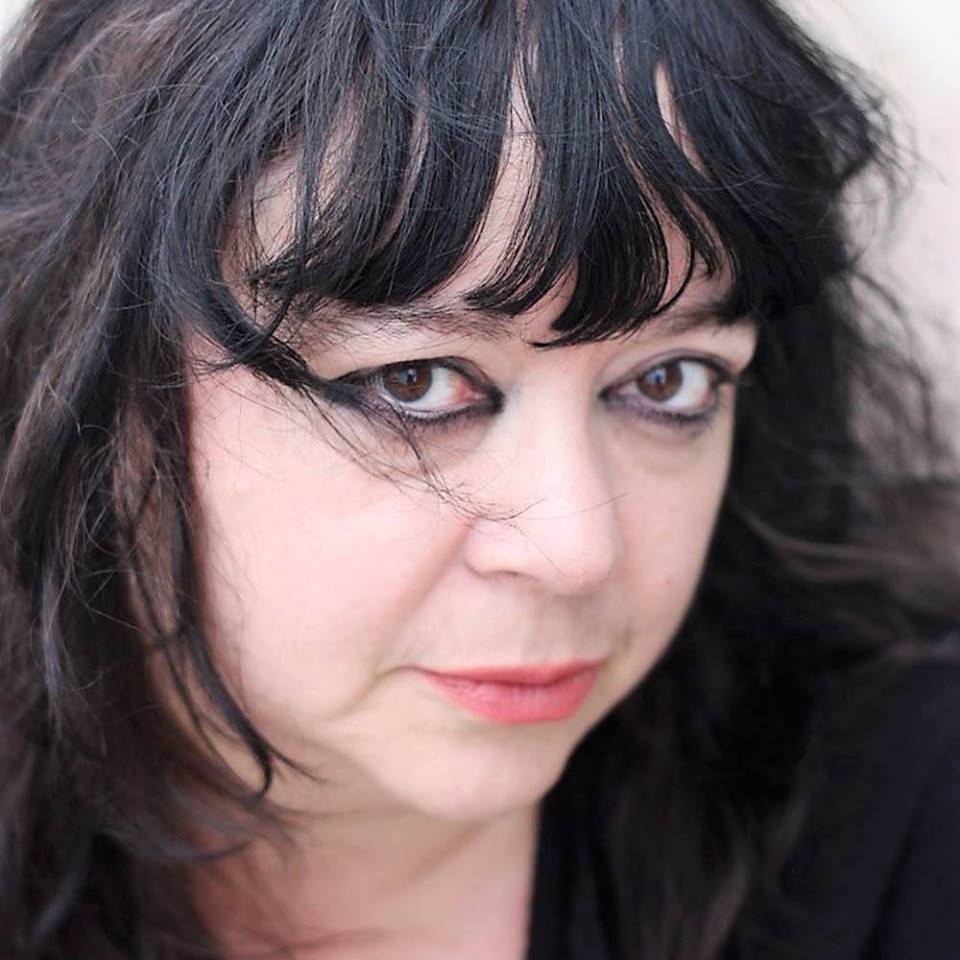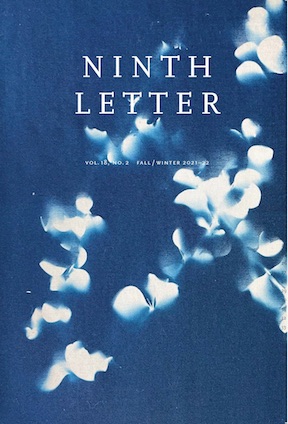Diane Seuss
Rhapsody
I like to call marriage state-sponsored
fucking. To return
to the world I must learn
how to love the world again. My problem
is with the word again. I don’t like repeat
performances. I come from a long line
of hungry people who hate leftovers.
The only movie I can watch more than once
is the original Frankenstein. I like the present
tense of spectacle. It’s like eating
an over-sour pickle. Wakes you up but hurts
your gonads. I got good
at romance early by choosing to wear pink
knee socks to the funeral. I sat on the floor
of the hearse on the ride from the church
to the cemetery, “making the best of it.” That’s
romance. It’s like when my mother took me to see
Mary Poppins for my eighth birthday and it turned her
into a flaming bitch. I understand why you didn’t like it,
I said to her, but I really loved it because I’m a kid.
Actually I hated it as much as she did.
That’s romance. Or when she went to the slaughterhouse
to pick up a cow heart for my science project.
It was still warm, wrapped in white paper.
They handed it over like a newborn and she gagged
all the way home. That’s romance. Some poet wrote
that he adores economy and requires precision.
I actually looked for antonyms:
extravagance, ignorance, imprudence, negligence, squandering.
I felt like a poor kid who finds a quarter and gorges
themselves on penny candy. From then on, everything
I created or promoted would be Rococo. Bows
and beams of sunlight festooning the candelabra
of the bewigged swing set. I have oppositional
poetry disorder. I want to express
my opinion about people expressing their opinions.
If only I could jump on the back of a motorcycle
and ride into the sweet potato field where the mother
deer flash their hooves and roar, and lay flat on the snake-laced
ground at midnight and watch the empty spectacle of the numb
satellites’ mindless circling that looks a lot like a boob
who thinks they’ve found nirvana. And to observe
with a jaundiced eye the skunk family march in a line
out of the cedar swamp and eat crayfish from a washtub. I want a papa
bear to split the Tree of Life down the middle scattering
the wormy apples. His furry berry-stained maw
such a display of what used to be called reality.
I want the next turn I make to be unearned.
Like getting gang-banged in a greenhouse at age fourteen
and calling it a honeymoon. I guess now that would be called
trauma, a word I’ve grown to hate. It’s like a cute puppy
who got old and whose only new trick is shitting in the house,
or a Band-Aid they call “flesh colored”
that only matches the flesh of the owner of the Band-Aid
company. A word can be overused into emptiness,
which is also a banality, so don’t tell anyone you love them.
If you call fucking making love I’ll kill you in your sleep.
Don’t say I do. It’s what suckers say, what liars say,
never take an oath wearing clothes that have to be hung
on padded hangers.
When women are murdered
people on TV always comment on the victim’s cheerfulness.
Like being a songful canary should have kept her
from getting her throat slit. My advice is to live on a street
in which no one will say, when you’re murdered,
things like that don’t happen here. Live in a neighborhood
where every house is considered a scar on the face
of France. My adult son calls me at noon to ask
if I ever loved his father. How can I
express that marital love is twelve banalities ago?
It’s like asking if I liked the taste of peaches
when I was a toddler. I preferred
smoke, catalpa worms, bowling trophies,
and using tweezers to remove the lit-up ass of a firefly
so I could smear it around my finger like a wedding ring.
The adage is that a cynic is a broken romantic
except for Arthur Rimbaud who was born and died
a misanthropic shrew. I would like to conjecture
that a romantic is a cynic who has been infected
with resurrection metaphors and believes in the integrity
of a good
line break. I know
someone who saw a famous
lounge singer carried out
of a Vegas hotel
on a stretcher with a broken
light bulb in his ass.
Be that guy.
Don’t be Jesus, be the Shroud.
Don’t be the savior, be the stain.
“Rhapsody” also appears in Ninth Letter Fall/Winter 2021-22 (vol. 18 no. 1), published in January 2022.
 Diane Seuss is the author of frank:sonnets (Graywolf, 2021); Still Life with Two Dead Peacocks (Graywolf, 2018); Four-Legged Girl (Graywolf, 2015), a finalist for the Pulitzer Prize; and Wolf Lake, White Gown Blown Open (Univ. of Massachusett, 2010), winner of the Juniper Prize. A 2020 Guggenheim Fellow, she is the recipient of a 2021 John Updike Award from the American Academy of Arts and Letters.
Diane Seuss is the author of frank:sonnets (Graywolf, 2021); Still Life with Two Dead Peacocks (Graywolf, 2018); Four-Legged Girl (Graywolf, 2015), a finalist for the Pulitzer Prize; and Wolf Lake, White Gown Blown Open (Univ. of Massachusett, 2010), winner of the Juniper Prize. A 2020 Guggenheim Fellow, she is the recipient of a 2021 John Updike Award from the American Academy of Arts and Letters.
